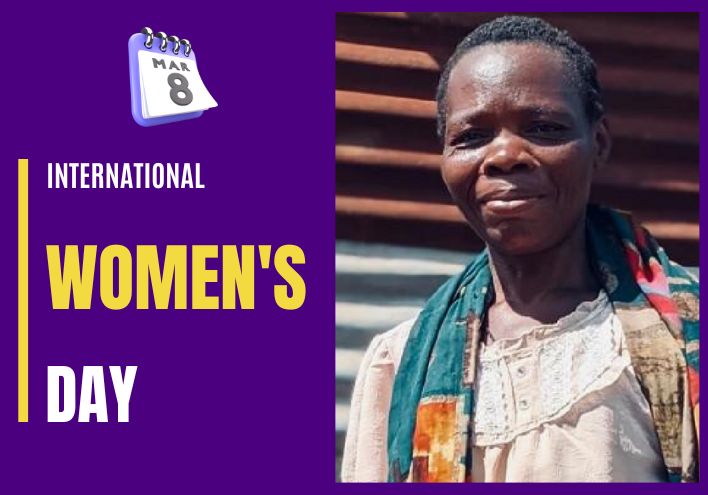Francine: Equal Land Rights for Women

Portraits of African Women Struggling to Survive Extreme Poverty
To mark International Women’s Day this week, we are highlighting some life stories of African women. These articles were written by regional Volunteer Corps teams with women involved in ATD Fourth World.
The aim of these portraits is to share with ATD Fourth World members and others the poignant accounts and remarkable courage of African women in their struggle to survive extreme poverty.
In Africa, as elsewhere, gender inequality does not only emerge in adulthood. It takes root from early childhood, influenced by parents and the process of socialisation.
Through the life experiences of Mariam Sankara, Delphine and Francine, we are confronted not only with sometimes painful realities but also with the determination and resistance of these women. Each of these accounts attests to the urgent need to address gender inequality and discrimination. They call for collective action against injustice and for the promotion of equal rights for all women.
Each account represents a call to recognise the fundamental rights of women, whether in education, inheritance, political participation, or opposition to forced marriages.
We hope that these portraits will inspire people to reflect deeply on the condition of women in Africa and encourage them to take action for equality and dignity.
Portrait written by the ATD Fourth World team in the Democratic Republic of the Congo
Francine lives with her four children on a hill on the outskirts of Bukavu in the Democratic Republic of the Congo. Her life is marked by numerous instances of social injustice, as she passionately advocates for equal land rights for women in her community. Currently unemployed, she has to contend with prejudices stemming from her physical disability.
Solidarity, Struggle, and Justice
In July 2019, Francine’s world was upended by the death of her husband, whose sole monthly income sustained the entire family. His passing plunged the household into economic instability. Even while in mourning, Francine faced hostility from her in-laws. They sold the land she shared with her late husband and forced her to leave to make way for new construction. This unjust eviction added to the grief of Francine and her children. This type of injustice happens all the time and is often endured in silence.
Faced with this situation, the family rallied to address Francine’s predicament. She was offered a sum of money, but a supporter of ATD Fourth World insisted she obtain a new piece of land, since the first plot had been sold without her consent. After an official report was drawn up, Francine obtained a new plot of land and looked for resources to build a house.
The Families in Solidarity group from ATD Fourth World in the Democratic Republic of the Congo stepped in, collecting contributions to buy the construction materials for the new house.
Generously, the parish priest donated some of the roofing sheets. This collective support provided Francine and her children with a home despite the hardships.
The challenges of land ownership for women after the death of their husband
Francine’s experience is sadly not unique. Many women in the Democratic Republic of the Congo and elsewhere confront maltreatment from in-laws after the loss of their husband. Customs that limit women’s access to land further exacerbate this situation.
Sometimes women are evicted from their homes and are left without shelter. The inheritable assets of the wife and children of the deceased are then seized and shared out by the strongest members of the family.
Although progress has been made in some countries toward equality and respect for women’s land rights, there is still a long way to go, particularly in rural areas.

